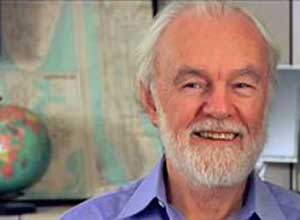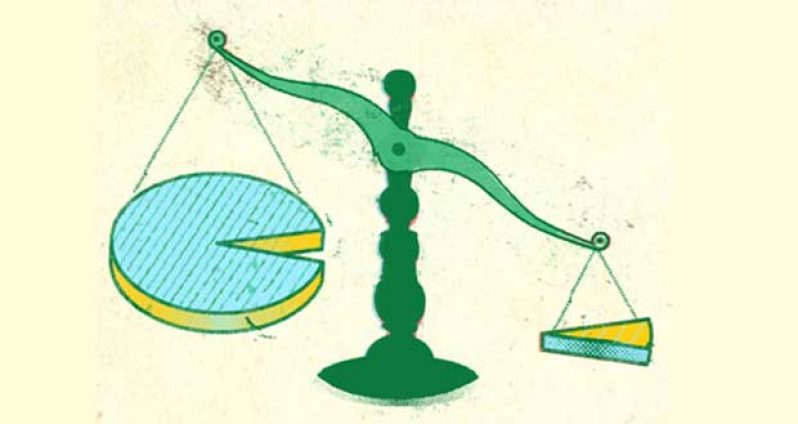Inequality is capitalism’s salvation
Part 2
IT is a great irony of our times that such huge attempts are being made to deport Marxism to history’s dustbin while capitalism remains the most favoured economic model for Western nations, in spite of its inhumane and degrading consequences for people. Indeed, deportation of Marxism to history’s dustbin would only happen where Marxism is public enemy number one, as in the U.S.A.
There is, perhaps, an amusing anecdote on this acrimony toward Marxist thinking in the U.S.A. Newly-appointed Britisher David Harvey at Johns Hopkins University was a member of the university commission in the 1970s analyzing problems in the city of Baltimore (1); in the report, Harvey indicated that he used ideas from Marx’s Das Kapital.
Baltimore policy makers claimed that the report was perceptive, not knowing that Harvey used Marxist ideas in the report. The point here is that the city policy makers would have thrown the report into the dustbin had they known upfront that the report was drawn from Marxist thinking. Harvey added that Marxist ideas worked for him and others and that the ideas were interesting. He spoke of Marxism in glowing terms in a country which is the bedrock of capitalism and where, too, capitalism is the ‘most favoured’ economic model, with top capitalists as its soldiers or guardians.
“…Marxist thinking is a requirement for change, a requirement to reduce inequality, and a requirement to reduce the gap between the rich and the poor.”
Under such circumstan

ces, it is more than likely that ‘most favoured’ implies that top capitalists of the Western world would opt to bail out capitalism whenever it is in crisis. Capitalism has its good days and bad days. Whenever bad days emerge, capitalism adapts itself to fight off the woes from such days through the good auspices of its capitalist masters. In fact, one of several forms of adaptation that capitalism makes in overcoming its flaws in a crisis situation is increasing inequality.
Look at the evidence for this growing inequality in 2009 during the international financial crisis, indeed, a significant crisis of capitalism, where chief executives at JP Morgan, Bank of America, Goldman Sachs, Morgan Stanley, Citigroup and Wells Fargo together made $36.8 million; in 2013, that total reached $96.1 million (2); even as the pains of the capitalist crisis still reign supreme and workers continue to receive pittance from their employers. In reality, capitalism adapted to the crisis by hiking inequality through exorbitant paychecks for top executives, thus further increasing the gap between the rich and the poor. Higher inequality leads to stronger capitalism which makes this conclusion feasible: inequality is capitalism’s salvation.
One substantial avenue available to raise inequality is neoliberalism. Neoliberalism works toward reducing the power of the government to provide social services, increasing the power of private enterprise, and put an end to controlling the free market (3). The march of neoliberalism is certainly anti-Marxist. On the local scene in Guyana, there is a concerted effort on the Opposition’s part to reduce the Government’s involvement and control of major public projects.
For instance, over the last few years, the Opposition engineered budget cuts on several public capital investments, such as, Cheddi Jagan Airport Modernisation Project, Ogle Aerodrome assistance, Civil Aviation equipment and Hinterland/Coastal Airstrips, the specialist hospital, among others, and effectively terminated the Amaila Hydropower Project. The Government’s capital projects when effectively operational would reduce unemployment in Guyana.
The slowing-down of these projects, therefore, is inimical to development and it is occurring when there is evidence to show that Government capital investments can add greater gains to the people than can private capital investments (4); and also that Government consumption expenditures produce a negative impact on growth, while Government capital investment expenditures yield a positive influence on growth (5).
The Opposition’s hold on these projects demonstrates its intent to increase unemployment and further increase inequality in Guyana. Given this situation, the Opposition seems to be in alliance with international capitalist forces to advance neoliberalism in Guyana. What this means is a developing trend toward greater inequality, and an increase in the gap between the rich and the poor. Against this background, Marxist thinking is a requirement for change, a requirement to reduce inequality, and a requirement to reduce the gap between the rich and the poor.
References:
1. Mapping a New Economy 2014 [July 19, 2014]. Available from: http://chronicle.com/article/Mapping-a-New-Economy/146433.
2. This CEO’s Paycheck Will Make You Sick: Wall Street Daily; 2014 [July 19, 2014]. Available from: http://www.wallstreetdaily.com/2014/06/02/ceo-vs-middle-class-salary/.
3. Harvey D. A brief history of neoliberalism: Oxford University Press; 2005.
4. Toye J. Fiscal crisis and fiscal reform in developing countries. Cambridge Journal of Economics. 2000;24(1):21-44.
5. Saleh AS, Harvie C. The budget deficit and economic performance: A survey. The Singapore Economic Review. 2005;50(02):211-43.
(By Dr. Prem Misir)




.png)









